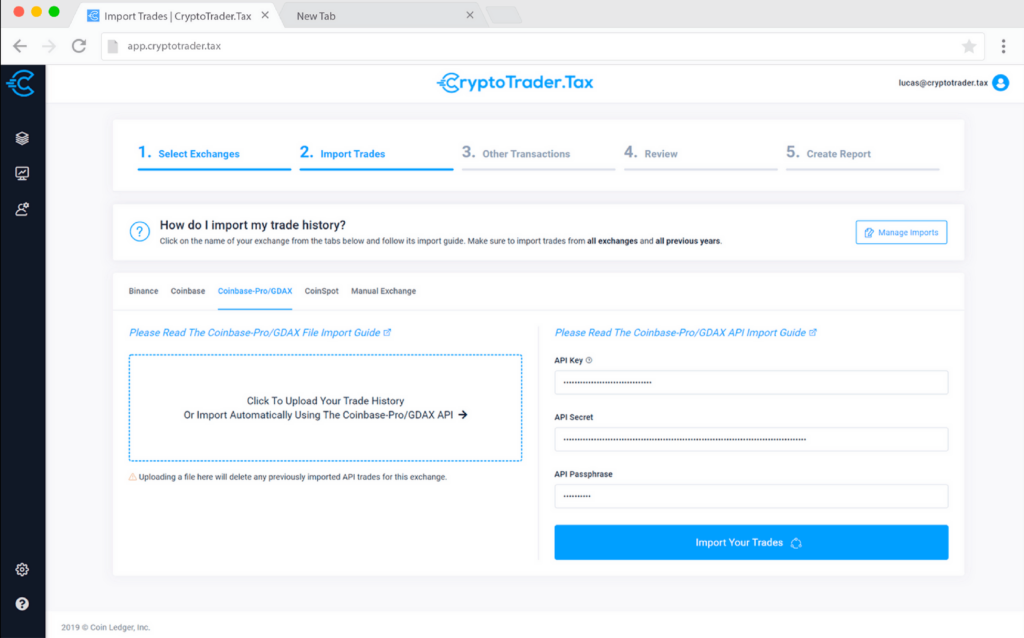We interviewed the team at CryptoTrader.Tax, experts in crypto tax, to better understand what GRT Delegators need to understand regarding taxes and GRT rewards earnings.
There are many risks to staking, or “delegating,” your GRT and becoming a Delegator with The Graph. It is important that individuals do their own research and evaluate all the risks before making the decision to become a Delegator.
One risk to purchasing GRT, and any other crypto or utility token, involves evaluating tax liability. To better understand how Delegators can make more informed decisions related to taxes, we interviewed the team at CryptoTrader.Tax, tax professionals with expertise in cryptocurrency and who have created an industry-leading software solution designed for individuals like GRT Delegators.
Note: GRTiQ does not provide tax or legal advice. You should contact your tax advisor and/or attorney before making any decisions with tax or legal implications. Most of the information presented in this interview relates to taxation in the United States.
GRTiQ: There seems to be a lot of ambiguity related to taxes and the purchase of cryptocurrency. Is the ambiguity more an issue of buyers not being informed about tax obligations or governing bodies not being clear on how cryptocurrency should be taxed?
CryptoTrader.Tax: The truth is that there is substantial ambiguity in both places. While the IRS has actually been very clear in its crypto tax ruling to date, as seen with Notice 2014-21, Rev Rule 2019-24, and the FAQ they have released, they haven’t gone into depth on the specific tax implications of DeFi-related transactions and some of the newer crypto market activity. This leaves a lot of room for “good faith” interpretation of existing tax law and existing cryptocurrency guidance when trying to determine how to best treat some of the transaction types related to newer crypto protocols (Liquidity pools, staking, rebasing coins, etc.).
It’s also true that your average crypto market participant isn’t up to date on a lot of tax law. When you combine these two elements, you get a lot of confusion in the marketplace, and that is what we are seeing and what we will likely continue to see moving forward in time.
GRTiQ: It seems that many cryptocurrency buyers don’t include tax risk when evaluating the risks (or costs) of owning and trading crypto. How do you advise buyers to be more thoughtful when thinking about taxes and the purchase of cryptocurrencies?
CryptoTrader.Tax: Yes, as with any investment, it’s wise to consider tax implications prior to jumping in head first.
Things like holding period (how long you hold on to your asset) as well as the actual nature of your investment—whether it’s earning interest income, staking income, or not—are important things to consider.
In general, you should have a high level of familiarity with how cryptocurrencies are treated from a tax perspective. There is a crypto tax guide we’ve written that will do that for you.
GRTiQ: Many cryptocurrency buyers believe that they don’t realize the loss (or gain) until they sell out of their position and convert it to fiat. Is that true? What about when transferring between tokens, like moving your BTC to GRT for free on an exchange – are there tax considerations in these types of moves?
CryptoTrader.Tax: First, we need to clarify that trading one crypto for another is the same as selling it for fiat, from a tax perspective. This is a common misunderstanding amongst crypto investors. Trading crypto > crypto does trigger a taxable event; it is a disposal of the crypto you are trading away. Just like selling for fiat then, you incur a capital gain or loss on the coin you are trading away. This gain/loss needs to be reported on your taxes.
Moving BTC to GRT, or in other words trading BTC to GRT, triggers a taxable event, and you realize a capital gain/loss on your BTC.
For example, if you originally bought that BTC for $100, and at the time of the trade to GRT it was worth $200, you would incur a $100 capital gain the moment you trade it for GRT.
GRTiQ: Are there any tax strategies, such as ways to write off certain costs, that you coach cryptocurrency buyers to think about?
CryptoTrader.Tax: Yes, the best cost savings strategies we advise CryptoTrader.Tax users of are covered in this tweet!
GRTiQ: This is an important question for GRT Delegators: how should they think about taxes and Delegator rewards earnings?
CryptoTrader.Tax: This is an important distinction for investors to understand. “Earning crypto,” whether that’s in the form of staking rewards, interest income, mining rewards, etc., is generally treated as ordinary income.
This simply means that from a tax perspective it gets taxed the same way that the income from your job gets taxed—dependent on your personal income tax bracket.
You determine how much income you recognize by looking at the fair market value of your cryptocurrency the moment you earned it—or when it became available to you in your wallet.
Crypto Tax Software like CryptoTrader.Tax can automatically retrieve the fair market value for any earned crypto income (staking, mining, interest). This saves you from the tedious work of having to lookup these values yourself.
Now, once you recognize the income, this amount becomes the cost basis in the coin moving forward.
For example, if you earn 100 GRT in staking rewards on May 1, 2021, worth $1,000, you recognize that $100 as income in 2021. Your cost basis in that 100 GRT is now $100.
Later, if you sell the 100 GRT for $300, you recognize a $200 capital gain on the sale (300 – 100).
GRTiQ: What is the biggest mistake, or most overlooked thing, that cryptocurrency buyers are making when it comes to taxes?
CryptoTrader.Tax: It’s hard to boil down to a single thing… there’s a lot! But the one misunderstanding related to earning crypto, as described in our prior answer, is important to understand.
When you “earn crypto,” like from airdrops, staking, LP rewards, this is income, and you owe taxes on the fair market value at the time it was earned, even if you never “cash out” to fiat.

GRTiQ: What is CryptoTrader and how does it work?
CryptoTrader.Tax: CryptoTrader.Tax is the leading cryptocurrency tax software platform. The platform works by integrating with exchanges, wallets, protocols, and blockchains to allow users to pull in all of their crypto transaction history.
By using the CryptoTrader.Tax integrations, users can pull in their complete transaction history in a matter of minutes.
From all this historical data, CryptoTrader.Tax does all of the number crunching and produces your needed tax reports based on this historical data, including your capital gains, losses, and income for any year you need.
Our team is constantly building out more integrations for leading cryptocurrency platforms. Many integrations get launched every month! Let us know which ones you want to see next.
WANT MORE?
Receive New Content
Direct to Your Inbox
DISCLOSURE: GRTIQ is not affiliated, associated, authorized, endorsed by, or in any other way connected with The Graph, or any of its subsidiaries or affiliates. This material has been prepared for information purposes only, and it is not intended to provide, and should not be relied upon for, tax, legal, financial, or investment advice. The content for this material is developed from sources believed to be providing accurate information. The Graph token holders should do their own research regarding individual Indexers and the risks, including objectives, charges, and expenses, associated with the purchase of GRT or the delegation of GRT.
©GRTIQ.com
